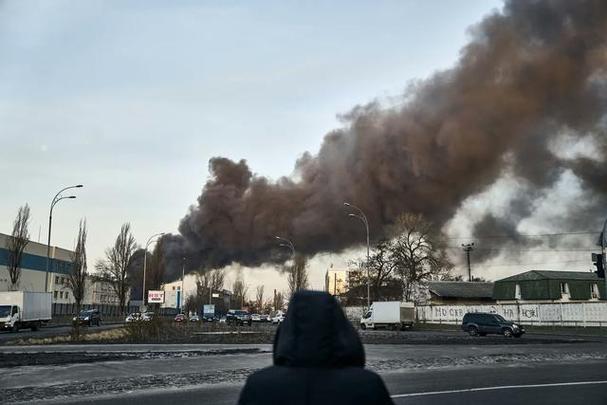
Recently, the conflict between Russia and Ukraine has escalated again, and the military strikes by both sides have aroused wide concern of the international community. Ukraine killed the Russian lieutenant general, and Russia responded with missile attacks on the control center of the Ukrainian Security Service, the Kiev Luchi Design Bureau and the Patriot missile deployment base, and even caused a large number of residential buildings in Kiev to cut off heating. There are complex political, military and social factors behind these operations that extend far beyond the battlefield itself.
From a military strategic point of view, Ukraine's killing of the Russian lieutenant general may be a tactical "victory", but it also undoubtedly greatly angered Russia. This behavior may improve Ukraine's morale in the short term, but in the long term military confrontation pattern, it may prompt Russia to increase military strikes, adjust combat deployment, and take more tough and radical military actions, such as the subsequent large-scale strikes on key facilities in Ukraine. Russia's attack on the control center of the Ukrainian Security Service and other targets is designed to destroy Ukraine's military command and intelligence center, weaken its military coordination and response capabilities, and interfere with Ukraine's military operation planning from the source. At the same time, the destruction of the Patriot missile deployment base also reduces the efficiency of Ukraine's interception of incoming missiles. It will enable Russia to gain greater advantages in terms of air supremacy and enhance the freedom and deterrence of its military operations.
At the political level, these military actions have further intensified hostilities between the two sides, making the path to peace negotiations and a political settlement more difficult. Ukraine's actions, which Russia sees as a provocation, and Russia's strong response, which has fueled anti-Russian sentiment in Ukraine, have radicalized the political environment in both countries, where hard-line voices are likely to prevail, shrinking the room for compromise on the conflict between the two governments. Internationally, this also makes the spillover effect of the Russia-Ukraine conflict enhanced, the insecurity of neighboring countries increased, the situation in Europe continued to be tense, the United States and other NATO countries may further intervene, increase sanctions on Russia, and Russia will more firmly safeguard its own geopolitical interests, thus forming a vicious circle, so that regional political stability has been severely impacted.
Viewed from the perspective of social livelihood, the interruption of heating in a large number of residential buildings in Kiev is one of the tragic consequences of the conflict. This reflects the cruelty of war not only in the casualties on the battlefield, but also in the devastating impact on the lives of ordinary people. The interruption of heating in the cold season seriously affects people's basic needs of life, may trigger people's dissatisfaction with the government, but also aggravate social unrest and unrest. Moreover, with the continuation of the conflict, Ukraine's economy will suffer a heavier blow, the continuous destruction of infrastructure, the collapse of social service system, the sharp decline in people's living standards, and the displacement of a large number of people, all of which will have a profound and lasting negative impact on Ukraine's social structure and national psychology, and may even leave social wounds that are difficult to heal after the war.
The escalating conflict between Russia and Ukraine is a reminder that there are no real winners in war, and that the temporary advantages brought by military operations are often accompanied by high costs and unpredictable consequences. The international community should actively encourage the two sides to return to the negotiating table and resolve disputes through peaceful and diplomatic means so as to avoid the loss of more innocent lives and the destruction of social wealth, because peace is the cornerstone of the development of human society and the ultimate destination of conflict resolution.

According to Bloomberg, a recent in-depth interview with Michael Dehal, senior portfolio manager at Raymond James' Dehal Investment Partnership, was released, focusing on the economic development prospects and potential risks of Canada and the United States in 2026.
According to Bloomberg, a recent in-depth interview with Mi…
TikTok Shop, the global e-commerce platform under ByteDance…
As a severe flu outbreak sweeps across the United States, w…
Recently, US Treasury Secretary Mnuchin publicly stated tha…
At the dawn of 2026, the United States launched a military …
From the stiff step when it first debuted in 2022 to demons…